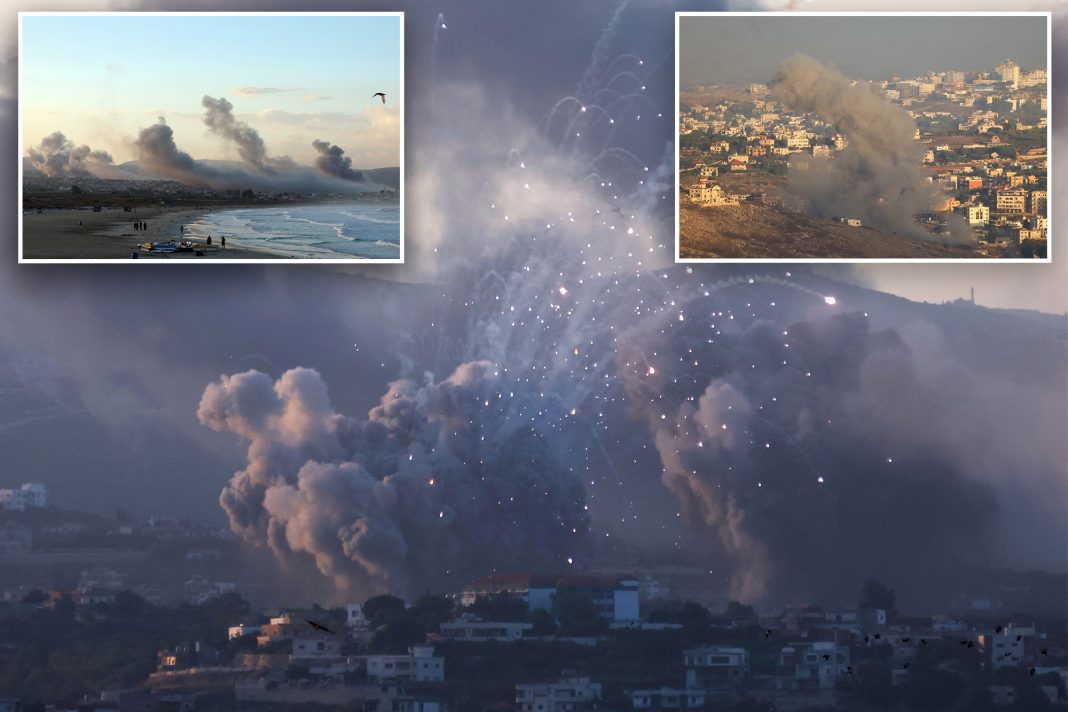In the midst of escalating tensions in the Middle East, the Israeli military has recently initiated a significant wave of airstrikes against Hezbollah, marking the most extensive offensive in nearly a year. This move comes amid a backdrop of intense conflict, as hostilities between Israel and Hamas in Gaza continue to unfold. The airstrikes targeted various locations across Lebanon, including the southern regions, the eastern Bekaa Valley, and areas near the northern border with Syria.
During a press conference, Israeli military spokesperson Daniel Hagari emphasized the necessity of these operations, stating, “we will do whatever is needed” to ensure the safe return of evacuated residents from northern Israel to their homes—a priority that reflects the Israeli government’s commitment to civilian safety amidst the chaos.
The recent strikes were not isolated incidents; they occurred during some of the heaviest cross-border exchanges of fire witnessed in this ongoing conflict. Onlookers in southern Lebanon reported hearing warplanes overhead and witnessing a series of airstrikes that sent plumes of smoke billowing into the sky. The Israeli military has accused Hezbollah of stockpiling weapons, including cruise missiles, in civilian areas, which has raised significant concerns about the safety of local residents. Hagari urged civilians to avoid Hezbollah positions, underscoring the group’s potential to endanger those living nearby.
In a revealing presentation, Hagari shared aerial footage purportedly showing Hezbollah operatives preparing to launch a cruise missile from a civilian house. The timing of the Israeli strike, which occurred just moments before the missile was launched, highlights the precarious nature of the conflict, where military strategies and the safety of civilian lives are in constant tension. “Hezbollah is endangering you. Endangering you and your families,” he stated, reinforcing the Israeli viewpoint that the militant group poses a direct threat to Lebanese civilians.
The situation has further intensified as Hezbollah retaliated with rocket attacks deep into northern Israeli territory. This escalation was echoed by Hezbollah’s deputy chief, Naim Qassem, who proclaimed during a recent funeral for a slain commander that “we have entered a new phase, the title of which is the open-ended battle of reckoning.” Such statements suggest that both sides are bracing for a protracted conflict, with Israeli Defence Minister Yoav Gallant indicating that military operations would persist until it is deemed safe for evacuated residents to return to their homes.
The conflict has roots in broader geopolitical dynamics, as Hezbollah has positioned its actions as supportive of the Palestinian cause in response to Israel’s military offensive in Gaza. This interconnectedness between the conflicts highlights the complex web of alliances and enmities in the region, where actions in one theater can have immediate repercussions in another.
Adding another layer of complexity, reports have surfaced of communication disruptions among Hezbollah members, with thousands of pagers and walkie-talkies reportedly exploding. While the attacks were widely attributed to Israeli efforts, the lack of confirmation from Israeli officials leaves room for speculation and underscores the covert nature of modern warfare, where information control can be as crucial as physical engagements.
As the situation continues to evolve, it raises pressing questions about the future of stability in the region. Experts warn that without a concerted effort towards a ceasefire—particularly in light of the ongoing humanitarian crisis in Gaza—these skirmishes could spiral into a larger regional conflict. The implications of this confrontation stretch beyond the immediate military objectives, touching on issues of civilian safety, international relations, and the enduring quest for peace in a region marked by conflict.
In summary, the recent airstrikes by Israel against Hezbollah are not merely a military response; they signify a complex interplay of local, regional, and international dynamics that are likely to shape the future of the Middle East for years to come. Understanding this context is vital for anyone seeking to grasp the intricacies of the conflict and its broader implications.
